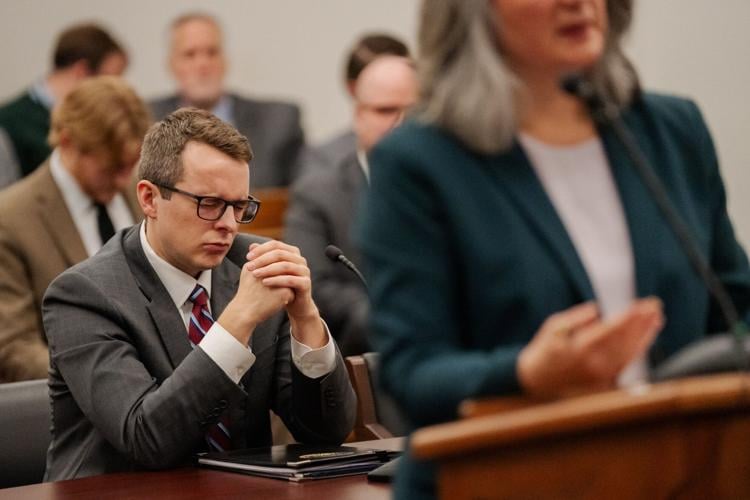ST. LOUIS COUNTY — The governor this week again asserted that he has the authority to choose the county’s new prosecutor, arguing that examples of other Missouri counties appointing replacements only prove there have been no legal challenges in those cases.
Missouri Gov. Mike Parson’s arguments were filed this week in a response to St. Louis County Executive Sam Page’s appeal of a circuit court’s ruling that gave the governor the sole authority to appoint a replacement when the county’s prosecutor, Wesley Bell, resigns Thursday to take his seat in the U.S. House.
Page’s lawyers said in their appeal that, of the five charter counties in Missouri, three — St. Charles, Clay and Jackson — currently have prosecuting attorneys who were initially appointed to office by county authorities after a vacancy.
But Parson’s attorneys wrote in their filing Sunday that those examples were “mostly unhelpful.”
People are also reading…
“This court cannot know why the governors and county officials involved in those appointments acted as they did or why the governors decided not to bring suit,” the response says. “And more importantly, the subjective beliefs of county officials or governors in the recent past sheds no light on the meaning of the constitutional provisions at issue here.”
The legal battle between state and county leaders began late last month when Parson and Missouri Attorney General Andrew Bailey, both Republicans, sued Page, a Democrat, to stop him from naming Bell’s successor.
St. Louis County lawyers argued the county charter allows Page to fill the vacancy. And on Dec. 3, Page announced his choice: Cort VanOstran, a former assistant U.S. attorney and a Democrat.
About a week later, on Dec. 12, Parson nominated Melissa Price Smith, an assistant prosecuting attorney in the county and also a Democrat.
Lawyers for the state and county earlier this month argued in court over who should have the power to appoint a replacement. A few days later, May ruled in favor of Parson.
Page’s attorneys appealed, arguing the county prosecutor is a county officer, not a state officer, giving county leaders the authority to appoint. The county’s appeal cites 100 years of case law and recent examples in other charter counties and said because prosecuting attorney powers are limited to incidents and issues that happen within their county’s jurisdiction, they do not act as state officers even though they enforce state laws.
But Parson’s legal team argued in their filing that the St. Louis prosecuting attorney is a state officer who “spends all, or nearly all, of his time representing one client — the state.” So the governor must “ensure that a qualified person protects the state’s legal interests.”
“Prosecuting attorneys are vested with the power of the state in a way that transcends county government,” the response says. “Courts have long recognized that the prosecuting attorney is not a ‘mere local attorney.’”
Parson’s response also argued there are other cases where prosecuting attorneys have concurrent authority over cases that span county borders.
Page filed a reply to Parson on Monday and argued that if the court affirmed May’s ruling, it “would not only upend long settled practice, but would cast a shadow over the legitimacy of currently serving prosecutors.”
Parson’s “unwillingness to grapple with these implications provides yet another reason to reject its position,” Page’s lawyers wrote.
The case will be argued Thursday in the Eastern District of the Missouri Court of Appeals.
St. Louis County and the state took their battle over the St. Louis County prosecuting attorney pick to the courts on Dec. 18, 2024. St. Louis County argues that it should have control over current prosecuting attorney Wesley Bell’s replacement, while the state says the governor has the right.












